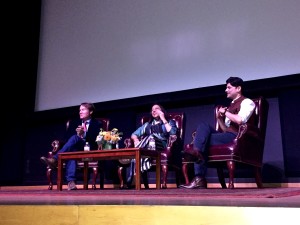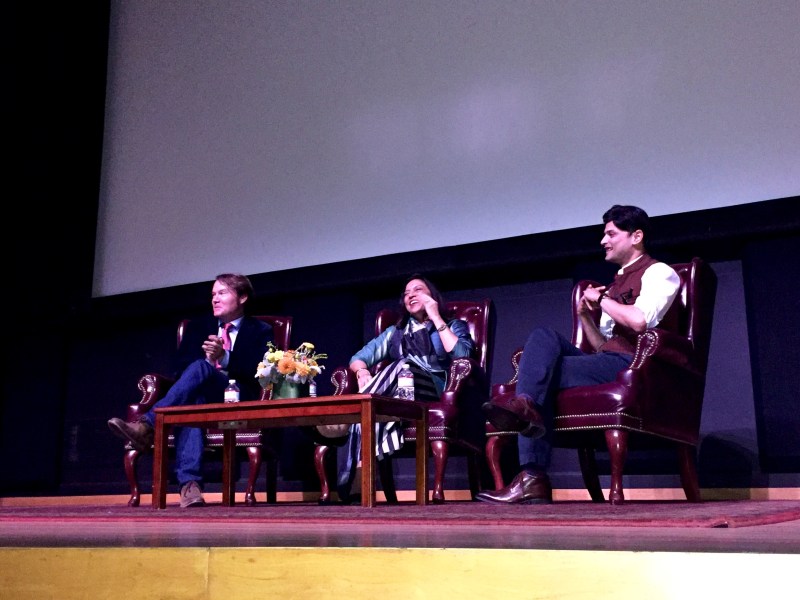
Filmmaker Mira Nair joined Stanford history professors Robert Crews and Aishwary Kumar on Wednesday to screen “The Reluctant Fundamentalist” (2013) and discuss the challenges associated with producing ethnic films.
Known for her works that transition between multiple spheres, from Hollywood to independent cinema and from India to New York, Mira Nair has garnered over 25 international awards including an Academy Award nomination for Best Foreign Film. Some of her works include “Mississippi Masala” (1991), “Monsoon Wedding” (2001) and “The Namesake” (2006).
Multidimensional people and situations are common staples in her films. While referencing “The Reluctant Fundamentalist,” a film that explored a Pakistani man’s life in New York following 9/11, Nair said she hoped to break the previous media tendency to present Islam as a purely monolithic state. Her films are meant to convey authentic stories about people.
“It was this desire to show our complexity that I wanted to clamp on,” Nair said. “Even though I knew it may not be popular, you’re on this world for a short time. I feel like I have to do what makes my heart beat faster.”
Regarding the soundtrack for Nair’s films, Kumar referenced the South Asian community’s music as a way to cross geopolitical barriers: “Do you see some of these cultural elements as a healing force?”
Nair pointed to her childhood love of and exposure to Pakistani music as a source of inspiration. Her time living in Brooklyn also presented her with a diverse selection of music, allowing her to seek out suitable musicians to fit her piece. Some pieces, such as “Aaj Mausam Bada Beiman Haiare” in “Monsoon Wedding” — a comedy drama following an arranged marriage in New Delhi — are chosen for their symbolic purposes. Others, because Nair owned the copyrights.
“[Music] is sort of what turns me on,” Nair said. “I chase musicians. I listen to music deeply and seriously for at least an hour or two a day.”
In today’s technology-driven world, it is easier to produce films than it was in the past; the equipment is more accessible and at a more affordable price. But the actual technical skills of filming should come secondary to learning about life in general, according to Nair. As a Harvard undergrad, she majored in documentary film studies; she never attended film school.
“To make films, you have to have something to say,” Nair said. “To have something to say, you have to be a student of life. And to be a student of life, you have to be feeding yourself with what life, politics, society, and your family fuels you with.”
She is currently working on “Queen of Katwe,” a story set in Uganda, which Nair considers her adopted home. The film follows the real life story of an uneducated girl’s journey to becoming a chess grandmaster at the age of 11. With this story, Nair hoped to illustrate a facet of Africa that is not often portrayed in media and films.
“The Africa in which I live is a place of great dignity and great beauty,” Nair said. “I tease that [Queen of Katwe] is probably the first Disney-financed African film without any animals inside.”
Although she doesn’t have any future works in mind at the moment, her eight-year-long project of turning “Monsoon Wedding” into a stage musical featuring 23 new songs will debut in Berkeley next September.
Contact Ariel Liu at aliu15 at ‘stanford.edu.
